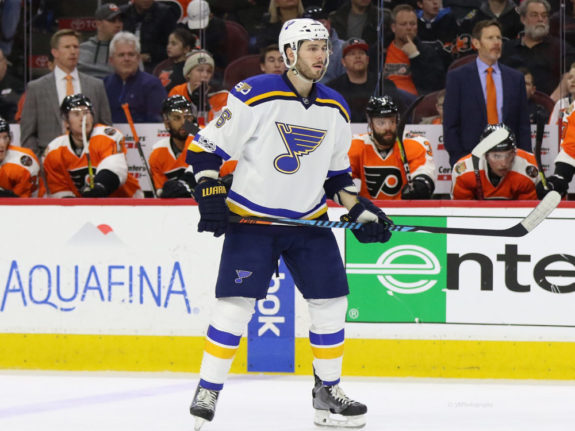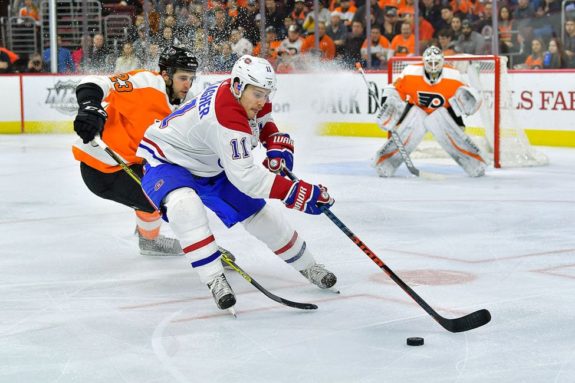The Montreal Canadiens will enter the 2020-21 season with heightened expectations after a surprise performance in the 2020 Playoffs. With strong roster additions in key positions added to the equation, including Tyler Toffoli, Josh Anderson, Joel Edmundson and Jake Allen, the stakes appear to be even higher. In order to showcase their improvement, though, they will have to prove they are capable of exhibiting a “killer instinct” that lacked greatly in 2019-20.
There is some recent precedent to draw from when considering how the core group has reacted to enhanced pressure and expectation. Look no further than the summer leading to the season that just occurred (2019-20). The Canadiens had a dismal 2019-20 season, but if fans remember, there was a great deal of enthusiasm and anticipation after the eye-opening season that was 2018-19, when the Habs defied critics by narrowly missing the postseason and finishing with 96 points.
The feeling quickly evaporated in 2019-20 when the team found itself mired in two eight-game losing streaks, among other poor performances. Some could argue that injuries were the culprit for their inconsistency, but the broader problem was in the Canadiens’ inability to close out games when they had leads.
In the 2019-20 season, the team blew 13 two-goal leads by the end of their Feb. 27 game against the New York Rangers. That is not including games where they lost the lead and still managed to win. When asked about the trend after the loss to the Rangers, Claude Julien admitted he had no answers for why they team continuously found ways to lose leads and games.

Ironically, the most memorable, and perhaps the most definitive circumstance that began the Canadiens’ string of losing leads, was the four-goal lead the team let slip against the same Rangers on Nov. 23, 2019, at the Bell Centre. From that point forward, the team did not appear capable of fully recovering. So, how can the Canadiens avoid or mitigate these problems in the 2020-21 season?
Integrate New Players Quickly
In order to avoid repeating the horrendous trend of allowing opposing teams to claw back into games, the Canadiens first need to integrate their new acquisitions into their system as quickly as possible. This may be difficult as training camps are expected to be as short as 10 days with perhaps no exhibition preseason games.

This is where Julien and the coaching staff need to step up. The coaches need to enter camp with a clear vision of where they want to slot everyone with several viable contingencies to make up for possible strong or poor performances. Transparency and communication between the players and coaches will have to be increased. The vision needs to be laid bare for each player and for the team as a whole.
Some of this may sound redundant to someone in a dressing room but the point is, like the training camp prior to the bubble playoffs, this is not a regular camp. There is little time for mistakes, miscommunications and misunderstandings.
Moreover, with all the new additions, the coaches need to instill the idea that this is a new team, although reminders of the problems of last season should be a lesson for the core group. The veterans of the team need to express that they have learned from last season and they, too, need to lead the way for the team.
Patience, Power Plays and Time Management
Last season, the Habs also lacked some patience. In order to lose a lead, naturally you have to have one. They often started games with good pace and determination. However, once they got the lead they tended to back off of their opponents. Some say this is a natural tendency in sport. I think there is truth to that to some extent, but in the NHL last season, you did not often see elite teams such as the Boston Bruins or Tampa Bay Lightning succumbing to their opponents consistently once having the lead.

Within the team’s dressing room the coaching staff needs to hammer home a strong message of finishing games strong. It is another one of the old redundancies or cliches — play 60 minutes. Still, playing this way requires patience. The team played with patience effectively against the Pittsburgh Penguins in the 2020 Playoffs and they had success. No one was running out of position or cheating on plays.
In addition, the team needs to find a way to convert 60 minute play into more power-play time. Last season, the Canadiens finished in the bottom three in power-play opportunities with 186 total. Playing an up-tempo style for entire games is meant to tire the other team and get them chasing. The team was not able to do this last season. Once again, they backed off and allowed the other teams to gain momentum, usually leading to the other team getting power-play opportunities.
Power plays can be an effective tool for time management when a team already has a lead. The Habs’ power play should be more lethal in 2020-21, but if not, it is still two minutes where the opposition will likely not have full possession of the puck. It should help increase fatigue on the opposition’s penalty killers as well. More power-play opportunities should help the Canadiens close out games.
The good news is that most of the Canadiens’ new additions are veteran players with Stanley Cup wins and playoff experience. Still, in order for them to maximize their influence and performance as new members of the Canadiens, they will need to be integrated into a system that preaches tempo and consistency. If they do, there is no doubt the Canadiens will be able to close out games in strong fashion.